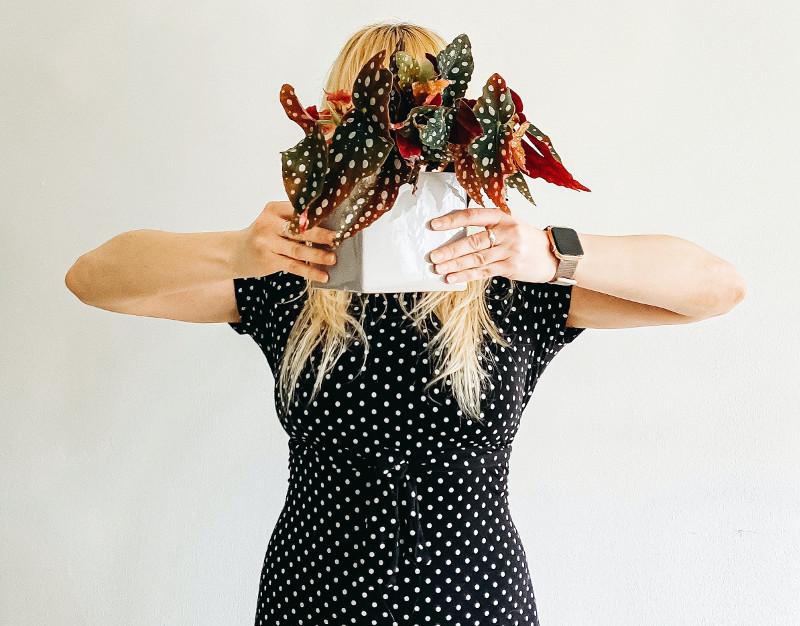Begonias contain calcium oxalate. This crystalline substance is mildly toxic, but very irritating if ingested. Humans and other animals such as cats, dogs, and horses rarely eat more than one bite because the first taste produces an unpleasant sensation in the mouth and throat.
The most toxic parts are the rhizomes, tubers, and roots. Eating begonia is rarely fatal because they produce irritation during ingestion preventing large amounts from being taken in.
Are Begonia Poisonous to Children
Small children and toddlers may be attracted to the pretty flowers on begonia plants. They will rarely take more than one bite and most likely spit that bite out. Begonia is not listed as toxic to humans on poison control center lists.

Are Begonia Poisonous to Dogs
Begonias are mildly toxic to dogs. Your dog may become ill, but unless your puppy or dog consumed many begonias, they should recover. Symptoms include drooling, difficulty swallowing, and vomiting.
Are Begonia Poisonous to Cats
Begonias are slightly toxic to cats. Symptoms of ingestion include excessive drooling, vomiting and your cat may have difficulty swallowing.
Are Begonia Poisonous to Other Animals
The calcium oxalate in begonias is irritating to any animal as they are consuming it. It is mildly toxic to horses, pigs, goats, chickens, and other animals. Ingestion of large amounts can cause kidney failure in grazing animals. Symptoms include vomiting and excess salivation.
Symptoms of Begonia Poisoning
Always check with your doctor or veterinarian for guidance if you suspect (insert plant) poisoning. Here are some common symptoms to look out for:
- Vomiting
- Excessive salivation
- Difficulty swallowing
Pet Poison Helpline
If something were to happen to your furry friend, and you suspect that they are suffering from (insert plant) poisoning, there is a poison control hotline to call for 24/7 vet advice. It is called the Pet Poison Hotline, and their phone number is (855) 764-7661.
Click here for a complete list of Pet Safe Plants.
Sources:
"Begonia." American Society for the Prevention of Cruelty to Animals. aspca.org
"Begonia." The North Carolina Extension Gardener Plant Toolbox. plants.ces.ncsu.edu
 |
Author Janice Cox - Published 12-09-2021 |


